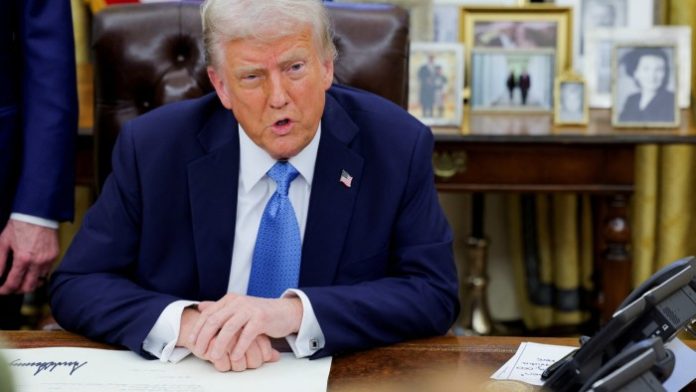Donald Trump has announced plans to impose tariffs on the EU, adding them to the list of targets that already includes Canada and Mexico. This move puts the US on the brink of new trade wars with its major trading partners. Despite acknowledging that these tariffs could disrupt the market, Trump believes they will help the US reduce its trade deficits.
During a press conference in the Oval Office, Trump stated, “The tariffs are going to make us very rich, and very strong.” He also mentioned his intention to impose tariffs of 25% on Canada and Mexico starting February 1. Furthermore, he threatened to extend these tariffs to the EU, criticizing the bloc for its treatment of the US in trade relations.
In addition to his plans for tariffs on various countries, Trump hinted at imposing tariffs on a wide range of products including chips, oil, gas, steel, copper, aluminium, and pharmaceuticals. These tariffs could be implemented as early as this month.
Economists warn that these tariffs could lead to inflation and hinder the Federal Reserve’s ability to reduce borrowing costs as anticipated. The prospect of imposing tariffs on major trading partners raises concerns about potential trade wars in Trump’s second term as president.
Both Canada and Mexico have prepared retaliatory tariffs, and the EU has also vowed to defend itself with counter-measures. In response to this escalating situation, Canadian Prime Minister Justin Trudeau stated that Canada is ready to implement forceful yet reasonable measures to protect its interests.
Despite criticism from economists and opposition figures, Trump remains steadfast in his belief that tariffs will lead to success, not inflation. The impact of these tariffs on American consumers remains a concern for many, with fears of price increases across various goods.
Trump’s decision to escalate trade tensions with Canada, Mexico, and the EU has sparked concerns about the potential impact on the global economy. Stay tuned for updates on this developing situation.




